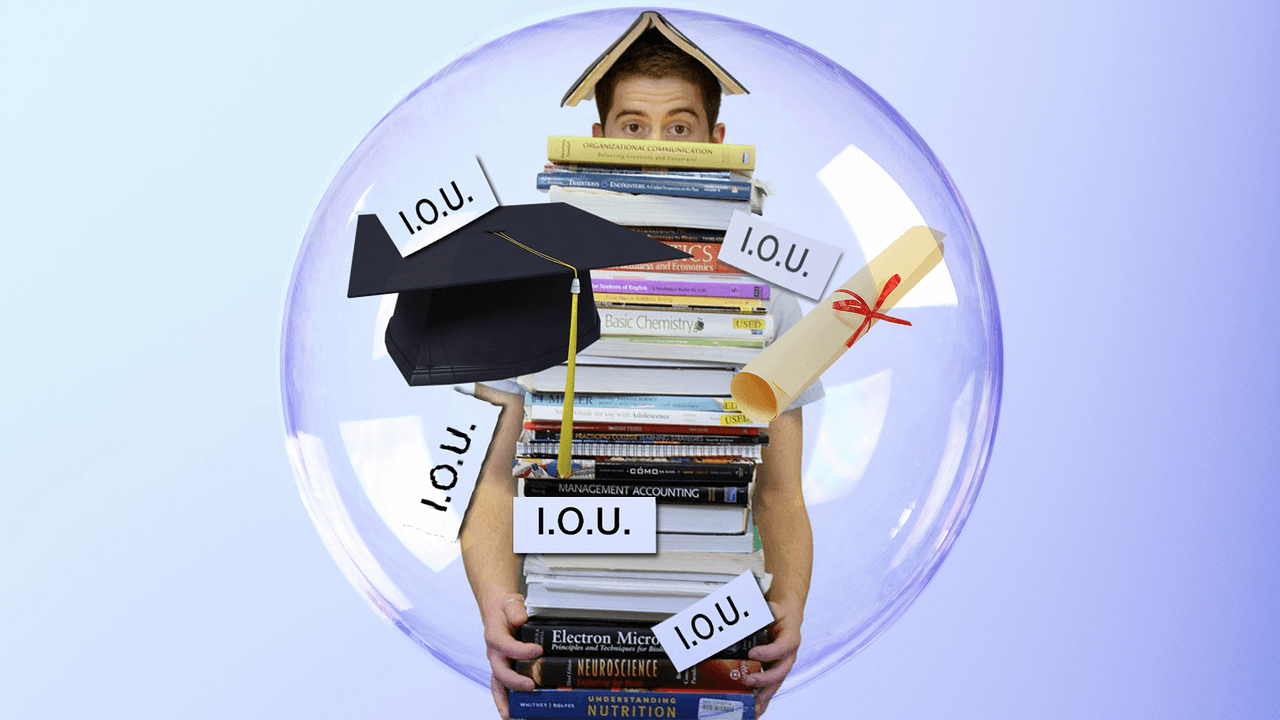Student-centric advice and objective recommendations
Higher education has never been more confusing or expensive. Our goal is to help you navigate the very big decisions related to higher ed with objective information and expert advice. Each piece of content on the site is original, based on extensive research, and reviewed by multiple editors, including a subject matter expert. This ensures that all of our content is up-to-date, useful, accurate, and thorough.
Our reviews and recommendations are based on extensive research, testing, and feedback. We may receive commission from links on our website, but that doesn’t affect our editors’ opinions. Our marketing partners don’t review, approve or endorse our editorial content. It’s accurate to the best of our knowledge when posted. You can find a complete list of our partners here.
No Interest Due: Should You Pay Your Student Loans?
 By
Kayla Korzekwinski
By
Kayla Korzekwinski 
Kayla Korzekwinski is a Scholarships360 content writer. She earned her BA from the University of North Carolina at Chapel Hill, where she studied Advertising/PR, Rhetorical Communication, and Anthropology. Kayla has worked on communications for non-profits and student organizations. She loves to write and come up with new ways to express ideas.
Full BioLearn about our editorial policies

Maria Geiger is Director of Content at Scholarships360. She is a former online educational technology instructor and adjunct writing instructor. In addition to education reform, Maria’s interests include viewpoint diversity, blended/flipped learning, digital communication, and integrating media/web tools into the curriculum to better facilitate student engagement. Maria earned both a B.A. and an M.A. in English Literature from Monmouth University, an M. Ed. in Education from Monmouth University, and a Virtual Online Teaching Certificate (VOLT) from the University of Pennsylvania.
Full BioLearn about our editorial policies

As of March 13, 2020, there is no interest on student loans that are owned by the U.S. Department of Education. There is also a suspension on all federal student loan payments. This break from payments and interest is a great opportunity to save money or get your finances in order. Another option is to continue paying off your student loans, which could save you money in the long run. Continue reading to learn if you should pay your student loans when there is no interest due!
Related: What we know about President Biden loan forgiveness
COVID-19 administrative forbearance
Due to the COVID-19 pandemic, all federal loans are in administrative forbearance until September 30, 2021. Borrowers with federal student loans do not need to make monthly payments during this time. Additionally, all federal loans have a 0% interest rate. Federal loans will not accrue interest during the administrative forbearance.
Borrowers still have the option to make payments toward their loans. There is no minimum monthly payment that must be made, you can pay as much as you want.
Contact your loan servicer if you wish to make payments while there is 0% interest.
Benefits of making payments with no interest
Making payments can reduce your overall interest. This is because you will first pay off the interest that had accrued before the forbearance began on March 13, 2020. Once that interest is paid off, payments will go toward the principal balance. If you can lower your principal balance while no interest is owed, the interest you pay will be smaller once payments resume.
Continuing to make payments will also improve your credit score. A good credit score can earn you lower borrowing costs on other loans or mortgages in the future.
See also: How do student loans Affect credit?
Overall, it’s always a good idea to reduce debts. Payments during administrative forbearance will lower the total amount that you’ll pay over the course of your loan. It will also help you pay off your total balance faster.
Should you make payments?
There are many benefits of paying during the suspension. But, the COVID-19 pandemic has left everyone in different financial situations. For some, making student loan payments during the administrative forbearance is easier said than done. Depending on your situation or repayment plan, it may not be as useful to make payments.
Standard 10-year plan
If you’re on the Standard 10-year repayment plan, and you have the means, it would be useful to set money aside for payments. The suspension can give you a a chance to accumulate money to go towards those loans and cut down on the interest that’s already accrued as well as the principal balance.
However, when weighing the possibility of widespread loan forgiveness, you may consider putting the money that would have gone towards payments into a designated savings account rather than making the payments immediately. With this plan, you’ll be paying the collected money towards your loans in a lump sum once the payments resume. This eliminates the chance of paying off loans that go on to be forgiven.
Also see: Grants to pay off student loans
Income-driven repayment plan
If you’re on an income-driven repayment plan (IDR), it may be better to save your money. This is especially true if you are hoping to receive forgiveness at the end of the repayment period. Whether or not you make payments, the months in administrative forbearance will count toward the required amount of payments for IDRs. However, if your goal is to pay off your loans as soon as possible, consider making payments.
Public Service Loan Forgiveness
If you are seeking Public Service Loan Forgiveness, it is not necessary to make payments during the suspension. As long as you are working for a qualified employer, the months spent in forbearance will count toward the 120 required payments. This is true whether or not you make payments.
Possibility of widespread forgiveness
In recent years, the possibility of widespread student loan forgiveness by the federal government has been a frequent talking point. It is unclear whether an action of this sort will actually take place, but as long as it remains a possibility, and there are no penalties for not making payments, it might be a good idea to refrain. Instead, you could save the money you would be paying in a savings account. That way, if loans are forgiven, you’ll still have all of the money that would have gone towards them.
Delinquency or default
If you were behind on payments, delinquent, prior to March 13, 2020, your loans will not go into default during the administrative forbearance. You can choose to make payments on your delinquent loan, or you can take advantage of the suspension to get your finances in order.
If you have loans in default, all collections activities are paused during the administrative forbearance. If you were working on loan rehabilitation, the months during the suspension will count toward the 9 months of required payments.
See also: Student loan default: What it is and how to avoid it and Student loan default: How to get out of it
Other options
Student loan payments are not required during the administrative forbearance. If you choose not to make payments, you can use the money saved for other things. One option is to put the funds that would have gone toward your student loans into a savings account. Then, when the suspension ends, make a lump sum payment. You can also use the money saved for other bills such as rent or utilities.
Whatever you choose to do, be sure that you use this suspension of payments to make smart decisions for your financial future!





